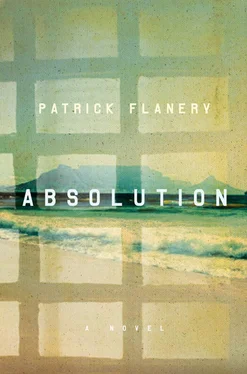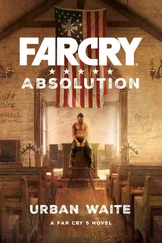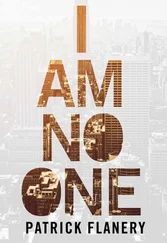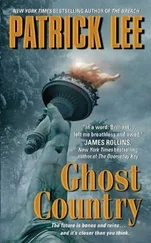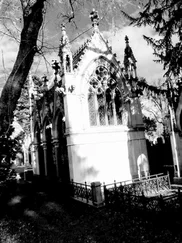‘Are you ready to go? Lamia?’ You did not respond. Sie war in sich . You were deep inside yourself. ‘Lamia? We’re ready, if you and Sam are ready.’
‘Yes. We should be going.’
The sun was already high as you pulled away from the campsite and into the full glare of the treeless mountains, volcanic red rocks flowing in undulating vertical waves. The remainder of the pass road was less harrowing than what you had negotiated the night before — fewer hairpin turns, less dramatic precipices. Now it was only a matter of not riding the clutch or the brakes. You feared how much a night’s sleep might have cost you.
Sam turned his attention to the two men, fixing them with the same uncompromising stare that had so moved and unsettled you. It was a relief not to be the focus of his attention. Sam did not just look, he studied, as if adults were an invasive species, alien to his experience of the world, creatures from fantasy. The men tried to bring him out of himself. Timothy had a length of rope and showed him how to tie different knots.
‘You can’t untie this one, can you?’ he said, smiling and gently elbowing the boy.
‘If I had a knife I could cut it,’ Sam said, grim and determined.
‘Ah, but there is a way, man. You don’t need a knife to cut this knot.’
‘A knife would be easier.’
‘But that isn’t the point, Sam. Try with your hands.’
You could not explain to them why Sam was so removed, so joyless. You scarcely understood it yourself, but wanted to shake him again, to say, Be happy! I have freed you! You are free! I killed to free you!
Prince Albert spilled out from the mountains, a white and green pool bright against the hard brown interior. You stopped on the edge of town to refuel the truck and buy more food and water. Timothy and Lionel bought sandwiches for themselves, and paid for half the fuel. Sam brightened after eating a peach, smearing juice and flesh over his face and shirt. The men doted on him, wiping his face as if he belonged to them. He withstood their attention like a dog that has learned not to snap when fussed for fear of being beaten.
Driving through the grubby northern outskirts of town, inhabited by filthy children and curs that stopped traffic on the road to fight over a piece of carrion, you passed a police car. Your chest tightened and as you slowed down the cruiser pulled into the road behind the truck. It followed you for half a second before turning around, lights flashing and siren shrieking, to race after a car travelling in the opposite direction.
‘This is the real Wild West out here,’ you said.
The Wild West: cowboys and Indians, farmers and natives, lawmen and outlaws. Lawmen gone wrong in our case, at the time, and outlaws on the side of justice. To be outside the law, to place oneself beyond the rules because the rules are wrong, that’s what you had done. Apart from our books, hidden in their camouflaged cavities, and our circle of associates, my associates in particular, hidden in their own ways, your father and I were always so law-abiding. Where did you learn to be more than just a paper rebel? Not from me. I was no model for action. Even my work, my papery protest, it could hardly be called daring.
The rest of that day you passed few cars. A truck had overturned, scattering lengths of metal along the roadside. The driver stood next to the wreck, looking bewildered. He waved to you but you shook your head — an apology and a dismissal. Along the highway people trudged with loads on their backs, bundles of firewood balanced on their heads, children tied in sheaths of cotton cloth against erect adult bodies. A group of boys had found a trolley from a supermarket and were taking turns pushing each other in it, pretending they were motorized. They waved when you passed, throwing dust in their faces. Agave and yucca broke the monotony of the flatland, sending up flowering spikes and curving their forms into succulent arcs. On the horizon a bustard broke into a run.
Sam fell asleep and Timothy read a book. Lionel sometimes read over Timothy’s shoulder, and when he grew bored he stared at the road being endlessly consumed by the maw of the truck, or watched you driving, your face hard and scarred as the road itself.
I look at the last photographs I have of you, the last trace, together with your notebooks and the final letter. You are somewhere on a hill, perhaps in the Nuweveld, with long white acacia thorns behind you, and the skimmed-off surface of the Karoo in the distance, hazily exposed, Sam standing beside you. This photograph of you and the boy demonstrates your possession and affection for him — your hands are on his shoulders, he squints, you look at him with a caring smile. In another you look into the camera, hold him out in front of you, his hair brushed away from his face, your hair blowing away from yours, so there can be no mistaking the two identities. These were meant for me. They were evidence, the case you were presenting. Not of maternity, but of responsibility. This child has been mine to look after , your face says. And now he is yours .
Mine.
How I have failed you.
*
TRUTH AND RECONCILIATION COMMISSION
19 JUNE 1996, GEORGE
VICTIM: Jimmy Sukwini
VIOLATION: Killed in ANC Bomb Attack
TESTIMONY FROM: Ethel Sukwini (Wife)

On continuation.
CHAIRPERSON: And on the night of the explosion?
MRS SUKWINI: I did not hear about it until sometime the next day. My husband worked the night shift and when someone phoned to say that the refinery had blown up I knew in my heart that he was dead. In my heart I knew already something was wrong before my friend phoned to say what the news was about the explosion.
CHAIRPERSON: Can you tell us, Mrs Sukwini, how your life changed after your husband’s death?
MRS SUKWINI: Mr Chairman, this is the worst thing that can happen. I don’t think I have to [ indistinct ] very hard for us after he died and we went to live with my parents. I was missing him all the time and my girls were missing their father. I still miss him. He was a good man. I understand why the comrades did what they did but I think maybe it should not have been like this. I don’t know. I was not a part of these things. I am only a teacher.
CHAIRPERSON: Thank you, Mrs Sukwini. Is there anything else you would like to say?
MRS SUKWINI: Only that I am still waiting for someone to come to me, to say to me that they are sorry, that they wish for me and for my daughters that my husband did not die. I am still waiting. Please, will you tell them to come find me?
The blast and the flash woke the boy and when he looked back to the north he could see the mountains on fire and a moment later her face was at the window of the truck and she was pointing a gun at him. Then she recognized him and put down the gun and said Open the door . They had known each other for a long time. Except for his dead parents he didn’t know anyone better in the whole world than Laura.
What are you doing here? she asked, looking at the boy’s face in the dark. Where’s Bernard?
He turned on the headlights and pointed.
Laura turned off the lights and perched on the steps leading up to the cab with the door open. Is he dead?
The boy nodded. He was sleeping. The truck went into gear .
We can’t leave him there .
Laura climbed down and together they went around to the back of the truck and they had to lift their shirts to cover their noses. The clouds were clearing and there was enough light from the moon for her to see the bodies inside and the boy didn’t have to tell her who they were because Laura knew the kind of work Bernard did. So let’s put him back here , she said, and together they lifted him up and carried him to the back of the truck and pushed him inside, and Bernard rolled against another body with its left arm missing and its hair burned off and the lips were curling away from the teeth. They closed the doors, locked the back, and rubbed their palms against the ground.
Читать дальше
